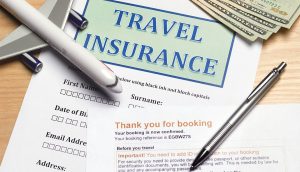Homeowners insurance is one of the most basic essentials you need to buy if you own your home, but it can also be one of the more confusing types of insurance you can purchase. Whether you’re planning on purchasing homeowners insurance or just want to learn more about what exactly it covers, this guide will help walk you through everything from understanding your coverage and shopping for an insurance plan to understanding your legal obligations and filing a claim if disaster strikes.Homeowners insurance protects your home against damage or loss due to fire, theft, or natural disasters. It also covers you if someone gets hurt on your property, whether you’re liable or not.An effective homeowners insurance policy will pay to rebuild your home and replace your belongings if they are damaged or destroyed by fire, wind, or another natural disaster, such as flooding or earthquakes. It will also provide financial protection against liability claims and medical payments associated with injuries to people on your property and damage to their property.
What Does Homeowners Insurance Cover?
Homeowners insurance that provides coverage for your home and other structures on your property, as well as its contents. Your personal possessions—from your iPhone to jewelry—are also covered by a homeowners policy. This policy also covers liability if someone is injured or their property is damaged while on your premises. For example, if a neighbour slips in ice you hadn’t cleared from in front of your house, you could be held liable for any injuries they suffer.

Why Do I Need Homeowners Insurance?
There are several reasons why you need homeowners insurance. First, if someone was injured on your property or you accidentally damaged someone else’s home, your homeowner’s insurance would protect you financially. Second, it will cover any damage that might occur from a natural disaster, such as a tornado or flood. Third, some homeowner policies also include liability coverage that would protect you in cases of lawsuits.
Who Offers Homeowners Insurance?
There are numerous insurance companies offering homeowners’ insurance. They include Liberty Mutual, GEICO, Nationwide, Farmers Insurance Group of Companies (Farmers), Travelers, Allstate Corporation (Allstate), State Farm Mutual Automobile Insurance Company (State Farm), USAA, Progressive Corporation (Progressive), The Hanover Insurance Group of Companies (The Hanover) and many others.
Where Can I Buy Homeowners Insurance?
The first step is to contact a broker or agent that sells homeowners insurance. Do your research, until you find a good deal for your particular situation. Once you have a few quotes from different brokers or agents, you can decide whether it’s best for you to buy directly from an insurance company or through an independent broker/agent. You can also ask your friends and family if they have any recommendations for good homeowners insurance agencies.
Allstate Corp
Factors Homeowners Should Consider When Buying Insurance
Buying a home is a significant milestone, and protecting that investment is crucial. One essential aspect of safeguarding your home is securing the right homeowners insurance. Before making this important decision, there are several factors homeowners should carefully consider to ensure comprehensive coverage that meets their specific needs.
- Dwelling Coverage Limits: Before purchasing homeowners insurance, evaluate the replacement cost of your home. Understanding the dwelling coverage limits ensures that your policy adequately covers the cost of rebuilding your home in the event of a covered loss.
- Personal Belongings Coverage: Consider the value of your personal belongings, including furniture, electronics, and other valuable items. Ensure that the policy provides sufficient coverage to replace these possessions if they are damaged or stolen.
- Liability Protection: Homeowners should assess their liability protection needs. Liability coverage can protect you in the event of a lawsuit related to injuries or property damage that occurs on your property. Determine an appropriate liability coverage limit to shield your assets adequately.
- Specialized Coverage: Explore additional coverages that may be necessary based on your location and specific circumstances. For example, homeowners in flood-prone areas might need to consider separate flood insurance, as standard homeowners insurance typically doesn’t cover flood damage.
- Insurance Deductibles: Understand the deductible amounts associated with the policy. A higher deductible often results in lower premiums but requires homeowners to pay more out-of-pocket in the event of a claim. Find a balance that aligns with your budget and risk tolerance.
- Claims Process: Research and understand the claims process of potential insurance providers. A smooth and efficient claims process is crucial during a stressful time, so homeowners should choose an insurer known for reliability and prompt claim settlements.
- Discounts and Bundling Options: Inquire about available discounts and bundling options. Many insurers offer discounts for safety features, such as security systems, and bundling home and auto insurance. Taking advantage of these opportunities can result in cost savings.




